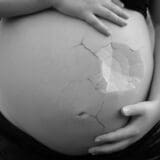The first trimester is the most crucial time in your pregnancy. It is when your baby’s brain, heart, and spinal cord develop. You will also start to feel your baby move during this time.
Weeks 1-4
Folic acid is essential for pregnant women as it helps to prevent birth defects in the baby. It is recommended that women take folic acid for at least six weeks before they conceive. Getting enough folic acid during the first 28 days of pregnancy is important for the embryo’s cell division and neural tube development.
Folic acid is important for a pregnant woman because it can help reduce the risks of spina bifida, birth defects, miscarriage and low birth weight. Pregnant women need to take a folic acid supplement of at least 400mcg per day to make sure they get enough, as it can be hard to consume the necessary amount through food alone.
The inner-layer cells of the embryo will become the baby, and the outer layer of cells will become the placenta. A woman’s diet affects the growth of the placenta. A healthy, well-fed mother produces a better placenta.
Ensuring your diet is packed with nutrient-dense fresh and unprocessed foods is important for the health of you and your baby. The placenta acts as a nutrition highway between you and your baby, so it’s important to make sure you’re getting enough nutrients.
It’s important to get rid of anything that might be harmful to your baby during pregnancy. This means cutting out alcohol, cigarettes, and caffeine. These substances can pass through the placenta and harm your baby.
Weeks 5-12
Starting in the second month, you may begin to experience nausea and food aversions or cravings. These cravings could be your body’s way of telling you that you need certain nutrients. For example, a craving for steak may indicate a need for iron, while a craving for milk may indicate a need for calcium.
If you’re experiencing morning sickness, there are a few things you can do to help reduce the effects. increasing your levels of zinc and vitamin B6 can help. You can also sip ginger tea and snack on nuts and seeds.
Many women experience exhaustion during pregnancy. It’s not surprising, with all the changes going on inside your body. To ease this feeling of fatigue, choose foods and activities that give you energy, rather than those that sap your energy.
When trying to regulate blood-sugar levels, it is better to switch from refined white foods like bread, rice, and pasta, to their wholemeal counterparts. Likewise, sugary foods and drinks high in caffeine should be avoided. Instead, aim to eat every four hours and drink plenty of fluids. If possible, take a nap in the afternoon.
The second three months of your pregnancy are referred to as the second trimester. This is the time when your baby grows the most. You will probably have your first ultrasound during this trimester. You will also start to feel your baby move.
Weeks 13-16
The second trimester of pregnancy is a time of rapid growth for your baby. They will grow quickly in size and weight, so it’s important for you to eat around 300 extra calories each day to support this growth. Eating an extra apple, piece of wholemeal toast, and glass of milk each day should give you the extra calories you need. You may also notice a weight gain of around 1/2-1lb each week.
Different things can cause constipation at any time during pregnancy. For example, hormones can slow down the movement of food in your intestines, to allow more absorption from the food. But as your baby starts to grow during this trimester, she may begin to put pressure on your intestines, which can also cause constipation.
To help keep things moving smoothly, eat plenty of fibrous foods and drink at least eight glasses of water a day. Take up gentle exercise, such as swimming or walking, and avoid caffeine as it dehydrates the body further. If all this fails, soak a dessert spoonful of linseeds in water overnight and drink the liquid every morning until the symptoms have passed.
Weeks 16-24
Hearing is the first sense to develop in babies, with the ear beginning to form at 16 weeks. However, it isn’t fully formed until the 24th week. Eyes also begin to open towards the end of this trimester. This is an amazing time for your baby’s senses to start developing!
Vitamin A is an important nutrient for proper visual and hearing development. The best sources of vitamin A are from vegetables, specifically those high in beta-carotene. Some great examples of these kinds of vegetables are carrots and yellow peppers. Adding these to your diet is a great way to ensure you’re getting enough vitamin A.
Weeks 24-28
During the second trimester, your enlarged uterus takes up space usually occupied by the digestive system, and may push against your stomach. This can cause heartburn for almost 80% of pregnant women. Towards the end of the second trimester, this may become more frequent or severe.
When you are pregnant, the pressure of the baby can cause gastric acids to move up the esophagus instead of down to the intestines. This can cause a burning feeling in your chest.
If you want to avoid aggravating your symptoms, eat smaller, more frequent meals, avoid spicy or fatty foods, carbonated drinks, processed meats, alcohol, and coffee. By making these simple changes to your diet, you can help minimize your symptoms and live a more comfortable life.
It’s best to eat at least three hours before bedtime and chew slowly. This gives your stomach enough time to digest your food before you lie down. Sleeping with your head raised helps prevent the digested contents of your stomach from moving up towards the esophagus.
As you enter your third trimester, you may start to feel more uncomfortable as your baby grows and your body prepares for labor. You may have trouble sleeping, and you may feel more tired than usual. You may also have Braxton-Hicks contractions, which are practice contractions that help your body prepare for labor.
Weeks 29-34
Up until now, you have been transferring essential fatty acids to your baby for their developing brain. However, post-birth, it is essential that you continue to provide them with calcium for their bones and teeth, and iron to protect against anemia.
A nutritious diet is not only important during the first trimester, but throughout your entire pregnancy. Your body will transfer all of its stores to the baby if you don’t eat a nutritious diet, leaving you feeling exhausted. Include oily fish, nuts, seeds, lean red meat, pulses, dark green leafy veg, and natural yogurt in your diet.
As your baby grows, they will demand more calories. You should continue to eat around 300 extra calories each day to maintain a steady weight gain. Gaining too much weight is not advisable, as this excess fat could lead to your baby battling weight problems for life.
To steer clear of hidden fats, opt for cakes and biscuits that contain less sugar. When snacking, go for healthier options like fresh fruit, nuts, seeds, and cereal bars. Too much sugar can lead to weight gain, so it’s best to be mindful of your intake.
Weeks 35-40
Giving birth is a lot like running a marathon – you need lots of energy to get through it. To make sure you’re prepared, stock up on complex carbohydrates like whole grains, vegetables and wholemeal bread two weeks before your due date. These foods are great sources of energy for your body and will help you get through childbirth.
The average baby weighs about 7lb 5oz by the end of the third trimester, but you may have gained around 28lb. Most of this weight is due to fluid, increased blood volume and the placenta. Excess fat is needed in preparation for breastfeeding – the best start your baby can have in life. Don’t worry, this weight will start to come off once you start nursing.
Before making any changes to your diet or exercise program, it is important to check with your GP or midwife. To ensure safety, it’s important to have your GP, midwife, or a qualified nutritional therapist oversee any supplements you plan to take.











